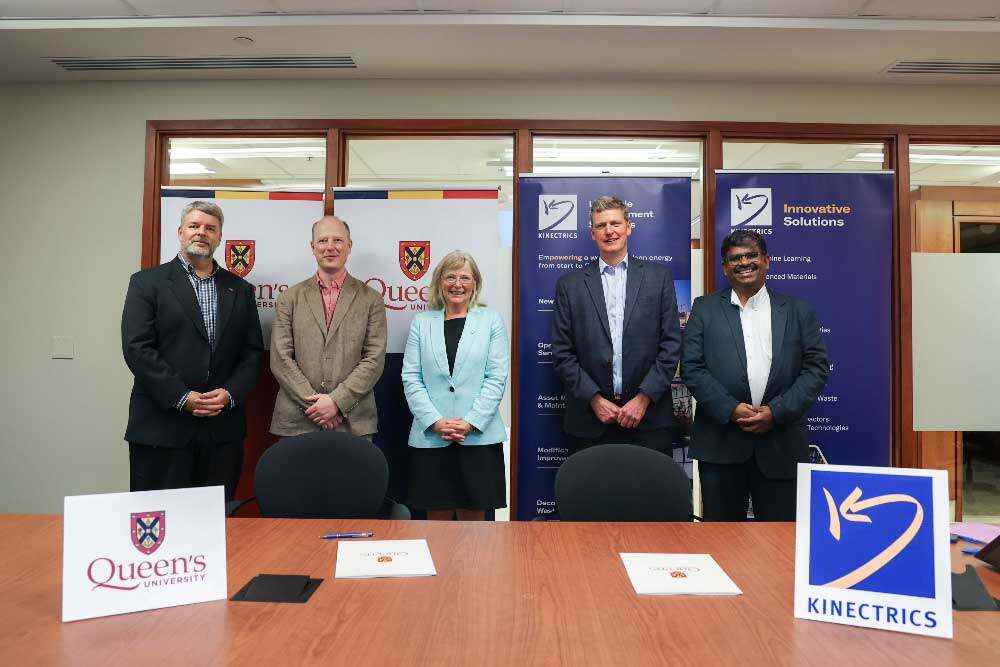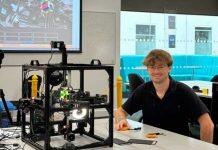

Queen’s and nuclear industry leader Kinectrics Inc. have entered a five-year Memorandum of Understanding (MoU) aimed at exploring and pursuing collaborative opportunities in research, development, education, recruitment, and training within the nuclear energy sector. The agreement, signed by Vice-Principal (Research) Nancy Ross and Kinectrics’ President and CEO David Harris on August 10, brings together joint expertise and experience in the space to foster growth of the nuclear industry in Canada.
“Partnerships are a priority at Queen’s, and we have a history of collaboration with Kinectrics, engaging in various research projects and training opportunities,” says Nancy Ross. “This relationship will be further strengthened through the MoU, allowing us to work towards shared goals in helping to shape the role of nuclear power in Canada’s energy transition.”
The agreement builds on Queen’s internationally recognized research program in nuclear materials and nuclear materials testing, leveraging the university’s Reactor Materials Testing Laboratory (RMTL). Within the RMTL, researchers are examining material interactions within nuclear reactors and assessing the lifespans of these critical pieces of energy infrastructure.
The MoU also marks a significant milestone in Kinectric’s efforts to strengthen ties with Canadian universities and build the presence of nuclear in the national energy mix.
“We are excited to embark on this new partnership with Queen’s that will focus on developing technological innovations and new talents to support sustainably powering a clean energy future,” says David Harris.
Through the MoU, Queen’s and Kinectrics will identify opportunities for research partnership, student learning, and talent development, with the aim of facilitating the seamless transfer of cutting-edge research and technological breakthroughs from academic labs to real-world applications. These opportunities may involve joint training and teaching, student exchanges, co-ops, internships, scholarships, and site visits.
“This is an important time for the Canadian nuclear industry and Ontario,” says Mark Daymond, Queen’s professor in Mechanical and Materials Engineering and the Canada Research Chair in Mechanics of Materials. “We need to rapidly increase our low-carbon electricity production to de-carbonize our economy, transport grid, and industry. Nuclear will play a major role in enabling this de-carbonization, along with renewables and energy storage. This MoU represents the beginning of a new chapter, and I look forward to seeing where it will take us.”
To learn more about this partnership, visit the Kinectrics website.






































